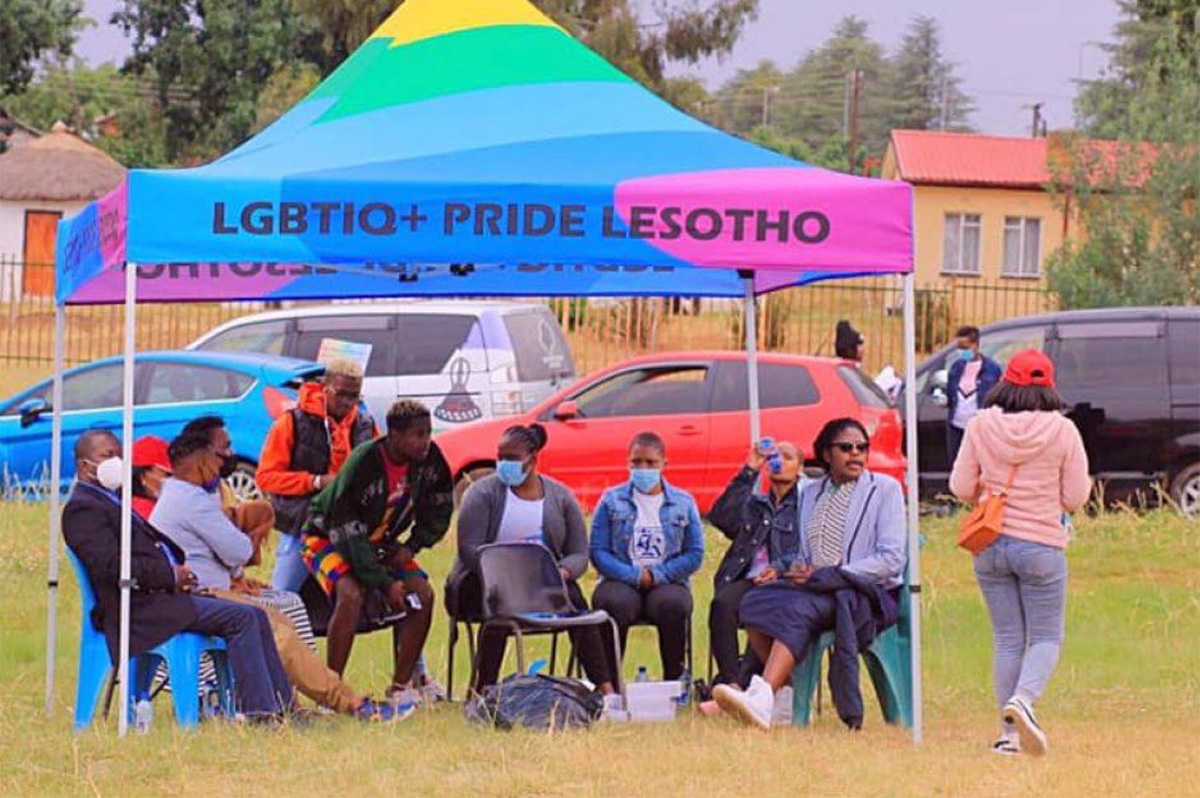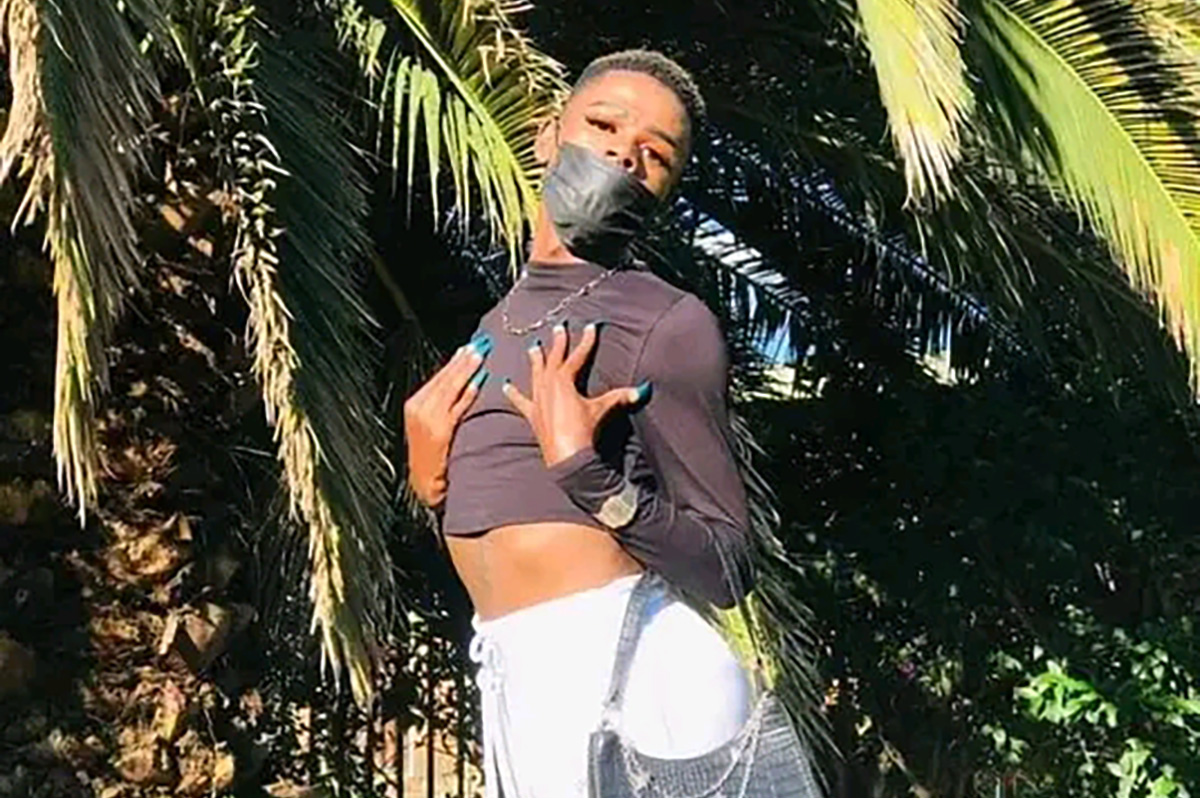Lesotho
Lesotho is an example of the power of communities
People’s Matrix Association’s tangible policy reforms have changed lives

This year’s International Day Against Homophobia, Biphobia, Intersexism, and Transphobia (IDAHOBiT) celebrates the diversity within the lesbian, gay, bisexual, transgender, intersex, and queer (LGBTIQ+) communities, from grassroots movements to regional and global networks, by honoring our varied and intersecting backgrounds, identities, and experiences. The 2025 theme highlights how strength and resilience grow through collective solidarity and open dialogue. It recognizes the transformative power of conversations bridging differences, fostering understanding, and building alliances. Through these dialogues, activists, human rights defenders, civil society groups, allies, and governments are shaping narratives and advancing equal rights.
“Motho ke motho ka batho!” or “A person is a person through other people!”
While many countries have seen policy reforms related to LGBTIQ+ people after lengthy court battles, the LGBTIQ+ community in Lesotho has a different experience and has taken a different approach, which has opened the doors to transformation.
At the heart of this story is the People’s Matrix Association, whose strategic, community-rooted advocacy has led to tangible policy reforms that have changed lives and set a powerful example for the region. At the core of this, they have been using dialogue as one of their core values and strategies to achieve legislative and social reform.
The power of collectiveness
The Basotho people’s innate emphasis on mutual respect, conversation, and shared humanity laid a strong foundation for meaningful engagement. With this understanding, the People’s Matrix Association focuses on building strong bridges with government officials, police, teachers, parents, and traditional leaders. Although not a walk in the park, activists have significantly succeeded in engaging with and encouraging policymakers to see LGBTIQ+ people as deserving of fundamental rights, such as dignity and equality and not as political pawns for popular votes.
The power of Pride
Despite facing pushbacks, stigma, and violence, the community remains steadfast. They organize, mobilize, and build alliances with broader human rights movements for deeper inclusion and intersectionality. For example, the IDAHOBiT and Pride celebrations play a crucial role in reaffirming LGBTIQ+ existence and further strengthening and inspiring unity. They enable Basotho LGBTIQ+ people to claim and occupy spaces.
The power of resilience as a catalyst for change
In 2024, the parliament of Lesotho amended the Labor Act 2024 to explicitly prohibit discrimination based on sexual orientation and HIV status. This bold move solidified Lesotho as one of the few countries in Southern Africa to protect LGBTIQ+ people in the workplace, after South Africa and Botswana. And all this happened without a court ruling. This amendment means that LGBTIQ+ people and people living with HIV have legal recourse against hate and discrimination in the workplace. A giant step towards dignity, affirmation, and economic inclusion.
Rights under attack
Early this year, Lesotho came under attack by the Trump administration. On March 4, 2025, Trump made a claim about the People’s Matrix Association receiving $8 million to promote LGBTIQ+ rights, adding that “nobody has ever heard of Lesotho.” This intentionally inaccurate disinformation has surprised many. Yet, during this moment of hostility, we witness the power of communities rallying in solidarity and using this moment to refute harmful narratives and the need to protect Lesotho’s values, which are: “U se ke ua re ho moroa, moroa tooe!” and “Motho ke motho ka batho!”
But it does not end there, in recent months, Lesotho has witnessed a rise in attacks towards LGBTIQ+ identifying individuals, fueled by an increase in misinformation, disinformation, discrimination and online hate. These threats and violence have put the community on edge. External forces, such as false sentiments, further make LGBTIQ+ people targets of hate.
Despite these challenges, LGBTIQ+ communities in Lesotho continue to organize, speak out, and build alliances to defend human rights. Now more than ever, the power of communities theme is important and relevant in protecting the gains made in advancing equal rights in Lesotho.
Tampose Mothopeng is a transgender human rights defender, publisher, and executive director of the People’s Matrix Association that championing the rights of LGBTIQ+ people. Bradley Fortuin is a consultant at the Southern Africa Litigation Center and a social justice activist.
Lesotho
LGBTQ activist murdered in Lesotho
Authorities have arrested a suspect in Kabelo Seseli’s death

Kabelo Seseli, a gay crossdresser and LGBTQ activist in Lesotho, was murdered over the weekend in a suspected homophobic attack.
According to the People’s Matrix Association, a LGBTQ rights organization, Seseli’s body was found with stab wounds on their neck and genitals.
“This was not just a murder, it was a hate-driven, dehumanizing act meant to send a message of fear and rejection to our community,” said the People’s Matrix Association in a statement posted to its Facebook page on April 29. “Kabelo deserved to live. Kabelo deserved dignity, safety, and the freedom to exist without fear, just like every Mosotho.”
The LGBTQ rights group also said it is demanding action, justice, and protection from the government, especially given the fact authorities have arrested a suspect.
“We strongly condemn this act of violence and call on the government of Lesotho and law enforcement authorities to conduct a thorough investigation and ensure that those responsible are held fully accountable,” said the People’s Matrix Association. “We also urge leaders and the public to reflect on the role of hate speech and social stigma, which continue to incite violence against LGBTI individuals across our country. We demand action.”
Victor Mukasa of Trans and History Intersex Africa also condemned Seseli’s murder.
“Death is a fact of life, but murder is criminal,” said Mukasa. “Murder of people because they are LGBTIQA+ or for belonging to a particular social group is a hate crime.”
Thato Motsieloa, a gay crossdresser and LGBTQ activist, said he was “deeply distraught to learn about the brutal murder of Kabelo Seseli.” Motsieloa said he and Seseli met on Facebook.
“Although we never met in person, we had plans to do so,” said Motsieloa. “The manner of his death is particularly heartbreaking, and the fact that his killers desecrated his body by removing his private parts is utterly heinous. I hope justice is served, and those responsible face the consequences of their horrific actions. My sincerest condolences go out to Kabelo’s family, may his soul rest in eternal peace.”
Lesotho in 2012 decriminalized consensual same-sex sexual relations. Marriage, however, remains limited to heterosexual couples. There have also been sporadic reports of anti-LGBTQ hate crimes since 2012.
The International Commission of Jurists, in partnership with Outright International, a New York-based LGBTQ advocacy group, in 2022 held a workshop with the Lesotho judiciary that focused on human rights for the LGBTQ community.
The judiciary noted LGBTQ people exist, but acknowledged there is no local jurisprudence on their rights, even though the country’s constitution guarantees the right to respect private and family life and freedom from discrimination.
Religious and cultural norms, like in many African countries, play a pivotal role in how society perceives the LGBTQ community. Many people in Lesotho disregard the existence of LGBTQ people, even though the government is trying to make room for the acknowledgment of LGBTQ rights.
Outright International Africa Advocacy Officer Khanyo Farise says the judiciary’s active engagement with the LGBTQ community is an important step towards ensuring LGBTQ rights are upheld.
“Judges and judicial officers play an important part in ensuring access to justice for LGBTIQ+ people, but also have an important role in producing judgments which can advance their human rights,” said Farise.
ICJ Africa Communications and Legal Officer Mulesa Lumina said though the ICJ is encouraged by these developments, particularly the willingness of judiciary members to understand the plight of the community, LGBTQ people continue to face harassment, discrimination, abuse and violence because of their actual or perceived sexual orientation and gender identity.
“We will continue working with partners, such as the People’s Matrix and Outright International, to ensure the enforcement of the country’s obligations under international human rights law, which entitle LGBTIQ persons to the full range of human rights without discrimination,” said Lumina.


















